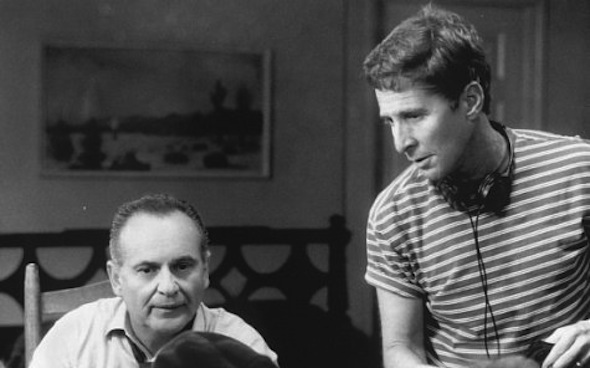
Having failed at everything as a writer, that’s how I got to where I am.
Tom Schulman.
Academy Award winning writer of Dead Poets Society, 2013.
So day two rolled around and unfortunately due to the commute back and forth from Melbourne I managed to miss what I was told was a brilliant networking breakfast. Although to be honest every time I hear that word networking I cringe a little. I just feel like the word makes me feel like I’m supposed to be friendly with people because I may need them at some stage. I’d rather think of it as an opportunity to meet like minded people in film who i’ll hopefully have long lasting relationships with. Either way I missed it, so onto the first session for the day.
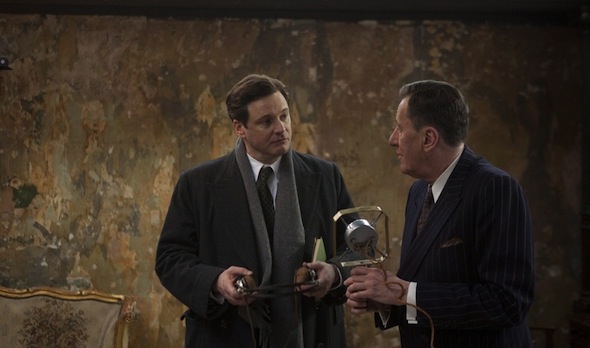
Moneyball: The High Stakes World of Development for the International Market.
I was looking forward to this session more than most as it was about developing content that works on an international scale rather than just a local scale and it also had one of the best panels of the weekend. It was chaired by Jan Sardi (writer, Shine) and featured Penny Chapman (Producer, Matchbox Pictures), Seph McKenna (Head Australian Production, Village Roadshow) and Emile Sherman (Producer, The King’s Speech, Shame). Looking forward to where Chris and I would like LateNite to head, this was a very important session as we want to think big in terms of the film and television that we want to produce.
The conversation started off with Seph talking about the “10 point plan” that Roadshow use to judge a project before jumping on board as a distributer. They basically allocate 10 points to 5 categories which include Screenplay, Director, Cast, Producer and Budget. It’s an important concept to think about because as filmmakers it’s easy to forget about the business side of making films.
He also spoke about Original Concepts as opposed to pre built franchise/brand ideas, sighting examples and thoughts behind both models. In regards to original concepts he spoke about the importance of cast as, without a pre built audience, they are what you’re selling on the poster. In the case of a pre built brand he used the example of Mao’s Last Dancer which, before going into production, was based on a book that had sold 1.3 million copies worldwide so you could argue that you potentially already have 1.3 million ticket sales in the bank before you even start rolling.
Seph is a man that I have been lucky enough to meet on a number of occasions through friends and projects I have been attached to and I have to say he is an incredibly generous and intelligent man. His parting advice at the end of his spiel: Market is key. The script must be beyond fantastic but at the end of the day, who are you making it for?
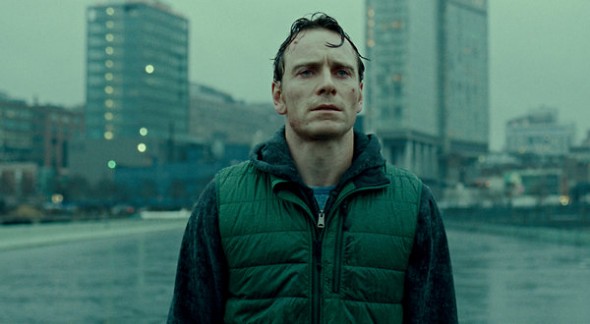
Emile Sherman was next cab off the rank and he spoke in depth about the four categories that he feels Australian film fall into. They were:
Art House
- Makes some sales in Australia and some small art house sales world wide
- Snowtown, Wish You Were Here
Australian Focus
- Often comedy (perhaps based on a book)
- Don’t really work overseas but hit big with the local market
- Red Dog, Wog Boy
Breakout Film
- Can have a wide release throughout Australia
- Works as a film overseas
- Bought and distributed by bigger art house distributers worldwide
- Have something a bit different, perhaps a bit of publicity or festival driven
- The Sapphires, The King’s Speech
Commercial/Genre Film
- Requires a wide release, not only here but overseas
- Needs a decent PA/Marketing budget
- Competes directly with Hollywood movies
- Has to put an Australian cast up against American casts, how do they compete?
- A Few Best Men, Mental
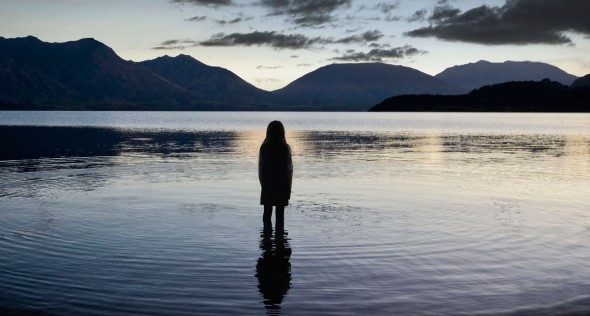
He also spoke about what he called, the writing paradox for producers, “Everyone wants the new original thing that’s worked before”. A really interesting concept which had me thinking for quite a few days about that in relation to my own projects. It seems to have been a constant theme throughout the three days, how do you take what’s already been done and find that hook, that original twist?
In terms of the business side of things, Emile echoed Seph’s comments about knowing your market. He said it distresses him to see writers working on concepts that don’t have an audience and that his job a lot of the time is to work with writers to shape their film into something that has market appeal. He also mentioned thinking about budget early on when writing. For example The King’s Speech was made on a budget of 13 million as they knew with Firth, Rush, Pearce and Bonham Carter starring that would be able to safely recoup their budget from box office numbers. With his other film Shame, they knew it would only have a very small art house release due to the subject matter and therefore only had a budget of 6 million.
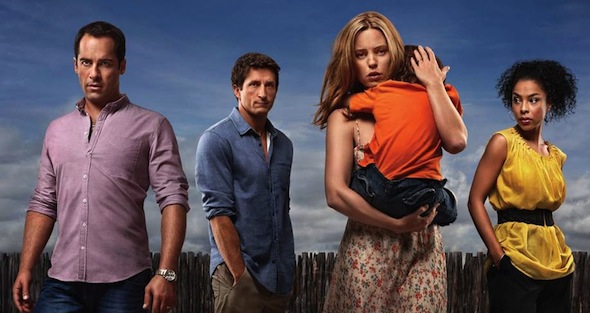
Penny Chapman was last in line and she spoke at great length about her experience at working in the Hollywood system after her company Matchbox was bought up by NBC Universal back in 2011. She spoke about the writers being the ones who sell projects in the States and that as television “takes over” from film thanks to HBO, a great showrunner (head writer) and writing team is gonna be what gets a project up.
They finished off with a story about a writer called Graeme Simsion, a man who I’ve had the pleasure of working with through a table read of his script The Rosie Project a few years back. Graeme won an AWGie award for his script but just couldn’t get the project up, no one wanted to touch it. After a few years he managed to get the script bought as a novel, with a publisher putting forward quite a substantial amount of money to get it written. And would you believe it – now people are chasing him for the film rights… what a strange industry we work in!
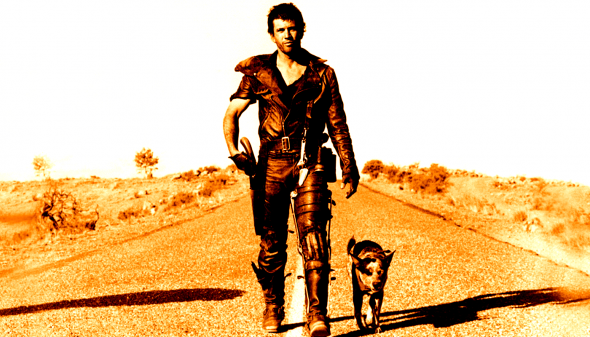
Warp Factor None: Writing Sci Fi Film & TV in Australia
I went to sit in on this talk due to a couple of projects that Chris and I have been working on in the last few years that have a bit of a Sci Fi twist to them. I was thoroughly disappointed with the talk which didn’t really seem to go anywhere. The panel seemed to talk mainly about the fact that Sci Fi could definitely and should be made in Australia, but really it isn’t that much. It was a real shame because the session was packed with writers who I think were expecting a bit more of an insight into Sci Fi writing and the deconstruction of what makes it work in Hollywood but perhaps currently not here.
The one thing I did pull out of this talk was the idea of Sci Fi content being impossible on low budget and that’s why it’s not really funded in Australia. The panel members sighted a few examples of low budget Sci Fi which have kicked huge goals around the world including Primer ($7,000), Cube ($350,000), Moon (5,000,000) and of course our very own Mad Max (350,000).
Before I move on I’d like to point out the huge slate of Sci Fi films being made in Australia including:
- The Rover (David Michôd)
- These Final Hours (Zac Hilditch)
- Predestination (Speirig Brothers)
- Tremula (Shane Krause)
Check them out if you get the chance.

Horror, The Horror
This talk involved writers Shane Krause, Shayne Armstrong and legendary genre producer Anthony Ginane and was about the issues that producers often find with first time screen writers. The two Shane’s had literally just come off judging the Terror Australis Competition and so got an insight as writers as what producers must have to put up with when reading a huge volume of scripts (they had to read 130 and pick 12 for the competition). They broke the talk up into 13 “rules” which I’ve attempted to summarise below.
Titles Matter
- Make them short and sharp / make sure people can spell and remember it
- Allow them to have multiple meanings within the screenplay
- Try to make it eye catching
Size Does Matter
- For genre in particular, longer scripts aren’t necessarily better
- People hate reading these days, don’t give ridiculously sized treatments/supporting material
- Make your pitch document as interesting and compelling as possible, don’t fill it with useless shit
Write like a Demon, NOT a Psycho
- Be professional (typo’s, grammar, punctuation etc)
- Energy, creativity and commitment come across on the page
- Use correct formatting
- Keep in mind Australian paper size is bigger than American paper size
Density Controls your Destiny
- A fast read is a good read
- Be careful that you don’t overwrite the BIG print
- If it’s taking you 6 lines to say something, can it be said in 1 or 2?
Your Soul is Judged within Two Pages
- Within two pages, the reader knows if you can write or not (can you write evocatively, character, situation etc)
- The more scripts you have to read, the quicker the judgements are when reading
- If it’s shit in the first two pages, it’s unlikely it will get better
Prepare to be Decimated
- Your script must be compelling in the first 10 pages
- Always a concern when the opening is too slow a burn
- If the premise isn’t knock-out interesting, you have to find a way to hook your reader immediately
- Don’t leave things too late in the read!
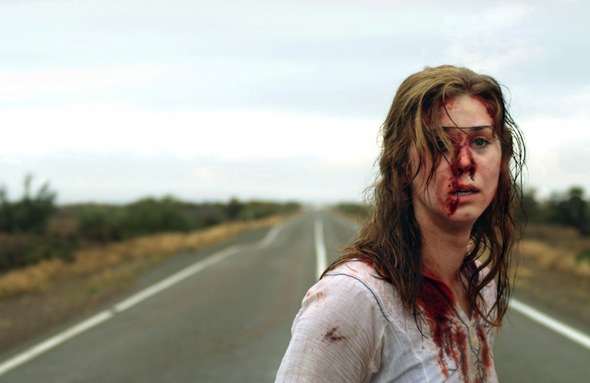
Death to Dilettantes!
- Know the genre, know the market, know the reader
- Horror scripts should be scary / if it’s not thrilling it’s not a thriller
- Be passionate about your genre
- You can only break the rules and conventions if you know them back to front
Premise is King
- Have to be able to distill your premise/hook in a couple of sentences
- What’s different about your premise/idea
- If you want it to be a theatrical movie what about your film cuts through?
Go for the Jugular (or Heart)
- Comedy horror, make sure it’s funny but still scary
- Go for an emotional/visceral response to the material
- The art in it is the passion you develop for a particular genre
Achievability can Make or Break a Script
- Want a producer to think: that’s a good concept AND I can find the money for this
- Don’t pitch to a producer who doesn’t work in the style/genre of your film
In a Digital World, Hard Copies Rule
- Better read when you hand over a hard copy
- Just cause we live in a digital world doesn’t mean everyone reads on an iPad/kindle
Break the Rules BUT Only if You Know Them
- Fuck with the system
- Look at Wolf Creek for a good Australian example
The Numbers are Against You
- In the spec script market, 20% are good, 5% are GREAT and the rest are rubbish
- There are a hell of a lot of scripts out there
A couple of interesting points in there but the discussion ended up descending into Anthony Ginane telling everyone that the industry is hard and eventually people have to start being realistic about their careers. Perhaps not the best forum for negativity but he makes an interesting point all the same.
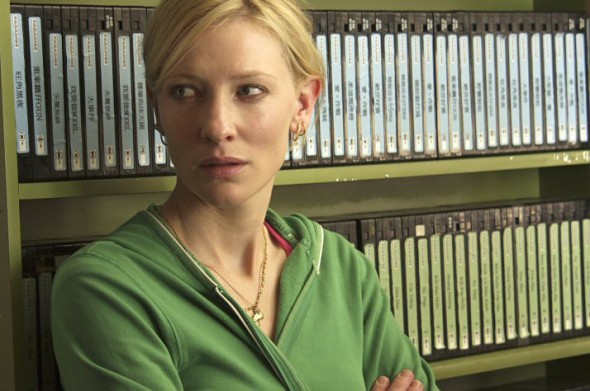
The Eclectic Writer: Pleasures and Pains of working in multiple genres
A great session to finish the day with as again it featured a rip roaring panel which included Tom Schulman (writer, Dead Poet’s Society, Honey I Shrunk the Kids), Andrew Knight (one of Australia’s greats, writer of SeaChange, Rake, Jack Irish), Jacquelin Perske (writer Love My Way, Little Fish) and Keith Thompson (writer, The Sapphires, Clubland).
I really enjoyed this session because it started off with all of the panel talking about how they got into writing and what made them want to write for film and television. The stories were diverse and all interesting, my favourites being Oscar winner Tom Schulman who started writing in multiple genres due to depression setting in when he couldn’t sell a script in Hollywood, Keith Thompson who got a job writing for television for Crawfords back in the day and got so bored writing for TV that he used to try to write album names and song titles into the shows dialogue and Andrew Knight who claims to have started writing after getting fired from his job for flooding the paint factory he worked in.
These four incredibly intelligent writers spoke throughout the session about the importance of finding your voice as a writer and allowing yourself to fail. Keith Thompson spoke a lot about being terrified every time he sits down to write and having to give himself a few days before getting started as he know that he will be so terrified he’ll waste a few days just staring at the screen.
They also spoke about sticking to your guns and gave their advice on (this is a quote) dealing with “fucking idiots” when selling your scripts. Their advice?
- Be polite and open to advice, don’t argue
- If you don’t agree with something just nod your head and ignore it later
- Listen and use your instincts as a writer
- Work with people that you’ve chosen to work with and check your ego at the door.
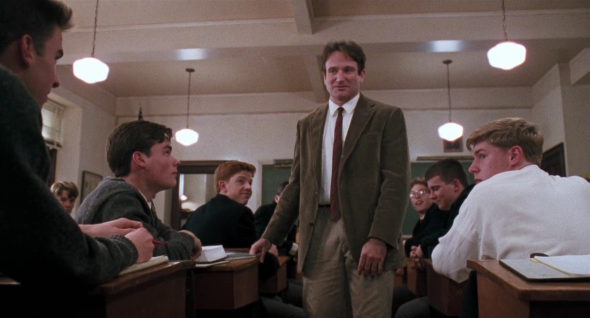
I enjoyed day two far more than day one and even though it was a long one, I felt I came out of it with a lot of interesting thoughts to ponder about story telling and the business of the industry that I’ve chosen to be a part of. I decided to miss the networking dinner to retire to my motel for some local Chinese food and to catch up on work.